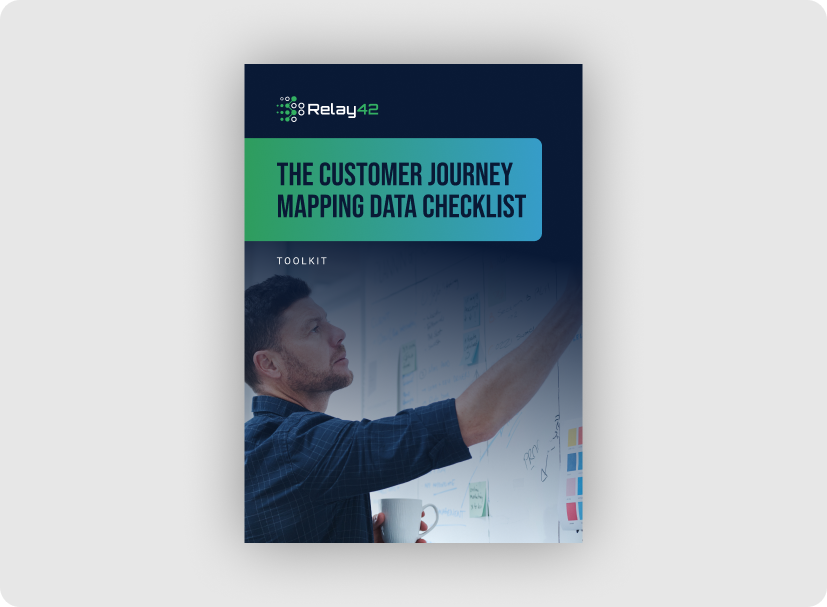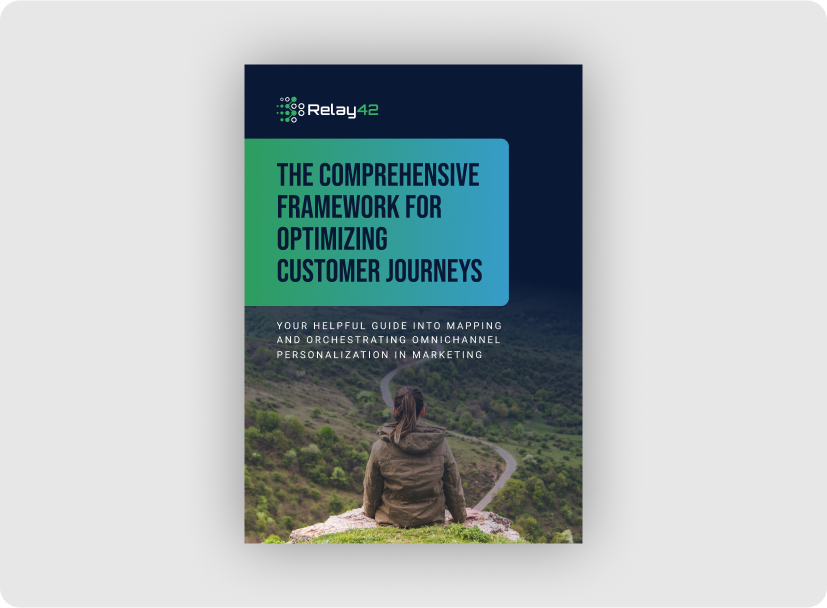CDP Content Library
Loved by Our Audience

2024 Comprehensive Guide on A-Z of Customer Data Platforms

Toolkit: 7 Steps into Getting Started with Building Your Journey Mapping Framework

The Comprehensive Framework for Optimizing Customer Journeys
See Relay42 in Action
Experience a first-hand tour of the Relay42 Customer Data Platform with one of our consultants


